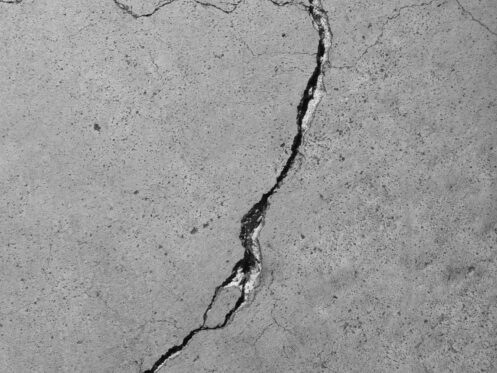In Charlotte, NC, the soil beneath your home plays a crucial role in the stability and health of your foundation. The soil type, structure, and its interaction with moisture can greatly impact foundation stability over time. Understanding the different soil types in the Charlotte area and how each affects foundations can help homeowners recognize potential risks and take steps to protect their homes from shifting, cracking, and settling.
Why Soil Type Matters for Foundations
The soil that lies directly beneath and around your foundation is the primary support for your home. Different soils react to moisture, pressure, and temperature changes in distinct ways. Some soils, for example, are more likely to expand and contract with changes in moisture content, which can create pressure on your foundation. Other soils may offer less stability, increasing the likelihood of foundation settling or sinking.
Charlotte’s unique climate, with its mix of rainy seasons and dry periods, can exacerbate these effects, making it especially important for Charlotte homeowners to understand how soil type impacts foundation stability.
Common Soil Types in Charlotte, NC
The Charlotte region is predominantly covered with clay-rich soil, but you’ll also find silt, sand, and loam in certain areas. Each of these soil types behaves differently under your foundation and can impact the stability of your home.
1. Clay Soil
Characteristics: Clay soil is the most common soil type in Charlotte and the surrounding areas. It’s known for its fine particles and high absorbency. When clay soil becomes saturated, it expands; conversely, it contracts significantly when it dries out.
Effect on Foundations: Clay soil’s tendency to expand and contract makes it one of the most challenging soil types for foundation stability. This cycle of swelling and shrinking exerts pressure on foundation walls, leading to issues like cracking and shifting. Over time, this movement can weaken a foundation and contribute to structural problems within the home, such as uneven floors or misaligned doors and windows.
Preventive Measures: To mitigate the effects of clay soil on foundation stability, homeowners can ensure proper grading around their home to direct water away from the foundation. Installing effective drainage systems and maintaining a consistent moisture level around the foundation can help reduce the risks associated with clay soil.
2. Sandy Soil
Characteristics: Sandy soil is coarser and drains water more quickly than clay. It is less common in Charlotte but can be found in some areas, especially near rivers or floodplains. Sandy soil does not hold moisture well, which can be beneficial in terms of reducing expansion and contraction, but it also has less stability.
Effect on Foundations: While sandy soil does not expand and contract to the same degree as clay, it poses its own challenges. Since sandy soil does not hold water well, it can lead to erosion around the foundation, causing gaps or voids that destabilize the base of the home. Additionally, sandy soils can shift under pressure, increasing the potential for foundation settlement.
Preventive Measures: If your home is built on sandy soil, installing deeper foundation piers or using soil stabilization techniques may be necessary to ensure long-term stability. Proper landscaping and drainage solutions can also help prevent erosion and protect the foundation.
3. Silt Soil
Characteristics: Silt is a soil type with particles that are smaller than sand but larger than clay. It can hold moisture, though not as much as clay. Silt soil is less common in Charlotte but may be present in areas where water tables are higher.
Effect on Foundations: Silt has a moderate tendency to expand and contract with moisture changes, which can affect foundation stability, especially when water tables rise or fall. Silt can retain water for longer than sandy soil, creating potential drainage issues that increase the risk of foundation settling or water intrusion.
Preventive Measures: Homes with silt soil benefit from proper grading and drainage to keep moisture levels consistent around the foundation. Installing French drains or sump pumps may also help prevent water buildup and reduce the risks associated with silt soil.
4. Loam Soil
Characteristics: Loam soil is a well-balanced mixture of sand, silt, and clay and is often considered an ideal soil for foundation stability. It has good drainage properties, retains moisture without becoming overly saturated, and is more stable than pure clay or sandy soil.
Effect on Foundations: Loam soil is relatively stable, with less expansion and contraction compared to clay. It offers a reliable base for foundations, reducing the risk of cracking and settling. However, loam is not immune to foundation challenges, as soil movement can still occur, particularly during periods of heavy rainfall or drought.
Preventive Measures: Homes built on loam soil generally experience fewer foundation issues, but it’s still essential to ensure that water is properly managed around the foundation. Regular maintenance of gutters, downspouts, and landscape grading will further enhance stability.
The Impact of Moisture on Foundation Stability in Charlotte
North Carolina’s climate, particularly in Charlotte, brings seasonal rains that can have a major impact on soil behavior. Clay-rich soils absorb water and swell during wet seasons, exerting pressure on foundation walls. When droughts follow, clay soils dry out and contract, leading to a cycle of expansion and contraction that can damage foundations over time.
Sandy soils in Charlotte, though less absorbent, can also shift or erode under heavy rain, leaving the foundation unsupported in some areas. These seasonal fluctuations underscore the importance of keeping soil moisture levels consistent to prevent movement beneath your foundation.
Signs of Foundation Problems Related to Soil Issues
Each soil type can lead to different foundation problems if the soil shifts, expands, or contracts.
Homeowners should watch for the following signs that may indicate soil-related foundation issues:
- Cracks in walls, floors, or ceilings: Expansion and contraction cycles create pressure that can lead to cracks.
- Uneven floors: Shifting soil can cause floors to slope or dip.
- Misaligned doors and windows: Foundation shifts may prevent doors and windows from closing properly.
Water pooling around the foundation: Persistent moisture around the foundation is a risk factor for expansive soils like clay.
If you notice these signs, it’s wise to consult a foundation expert who understands the soil types in Charlotte and can recommend appropriate solutions.
How RhinoLift Foundation Solutions Can Help Protect Your Foundation
RhinoLift Foundation Solutions, based in Concord, NC, specializes in foundation repair for homes in the Charlotte area. Our team understands the unique challenges posed by local soil types and can provide solutions tailored to your home’s specific foundation needs. From identifying soil composition to installing effective drainage systems, we help ensure your foundation remains stable and secure.
Our services include soil stabilization, crack repairs, concrete leveling services, and drainage solutions to manage soil moisture levels and prevent foundation problems. If you’re concerned about soil-related foundation repair issues or want to take preventive steps, RhinoLift Foundation Solutions is here to help.

